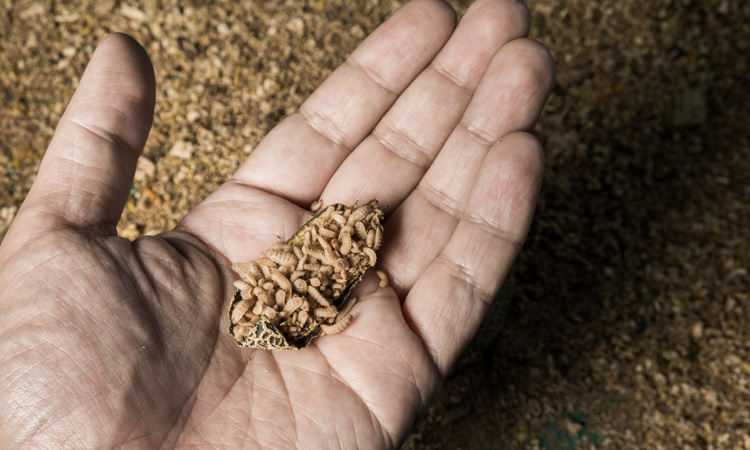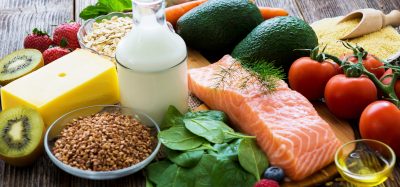What would you say to insects being a part of your food chain?
- Like
- Digg
- Del
- Tumblr
- VKontakte
- Buffer
- Love This
- Odnoklassniki
- Meneame
- Blogger
- Amazon
- Yahoo Mail
- Gmail
- AOL
- Newsvine
- HackerNews
- Evernote
- MySpace
- Mail.ru
- Viadeo
- Line
- Comments
- Yummly
- SMS
- Viber
- Telegram
- Subscribe
- Skype
- Facebook Messenger
- Kakao
- LiveJournal
- Yammer
- Edgar
- Fintel
- Mix
- Instapaper
- Copy Link
Posted: 25 March 2022 | New Food | No comments yet
Environmentally conscious consumers are more likely to consume chicken raised on insects or algae, a new study has found.


Environmentally friendly consumers prefer the idea of using alternative proteins, such as insects, in poultry feed if they’re given enough information about the health and environmental benefits, a new study by the University of Alberta has found.
“Producers need to get the labelling sorted out as these feeds are developed,” said study co-author Sven Anders, an agricultural economist and professor in the Faculty of Agricultural, Life & Environmental Sciences. “If you want consumers to believe in these alternative products, you have to educate them about it, then they can decide — and hopefully we can overcome their rejection,” he said.
Anders said there are currently no regulations governing mandatory labelling of feed ingredients in the European Union (EU) or any other market, including the United States and Canada, but interest is growing in finding alternative sources of protein for animal feed.
Soybeans feed the majority of the world’s livestock but also take up a large amount of land and water resources, while insects and algae can be grown much more sustainably, the study states. But it adds that people won’t be happy with the idea of insects or algae as part of their food chain if they aren’t given reliable information up front.
In the study, published in Food Policy journal, over a thousand German consumers were shown photographs of raw chicken breasts. Some of the chickens had been fed a standard diet of soybean meal. Others had been fed with either insect meal containing blackfly larvae or spirulina; a known dietary supplement made of blue-green algae. The two alternative protein sources produced more intense red and yellow hues in the meat.
Half of the participants were also given information about the nutritional and environmental benefits associated with each feed. The other half received no such information. Both groups were asked to choose repeatedly among random pairs of chicken products that differed in price, feed diets and labels with information about sustainability and health attributes.
Although participants’ preferences were mixed, those who were already interested in sustainability and who received information about the insect and algae-fed meat were more inclined to buy it, Anders stated. Those environmentally aware consumers were also drawn to package labelling that promoted elevated levels of beneficial omega-3 acids in the alternatively fed chicken samples. When told about the insect meal or spirulina in the chicken, consumers who didn’t identify as environmentally conscious said they wouldn’t buy it.
“The findings show that providing information is a double-edged sword,” Anders added. “It can cause mainstream western consumers to react with disgust around insect- or algae-derived foods.”
The study suggests that package labelling paired with widespread education campaigns would help raise consumer awareness.
Related topics
Environment, Ingredients, Insect Protein, Labelling, Packaging & Labelling, Proteins & alternative proteins, Regulation & Legislation, Research & development, Supply chain, Sustainability, The consumer








